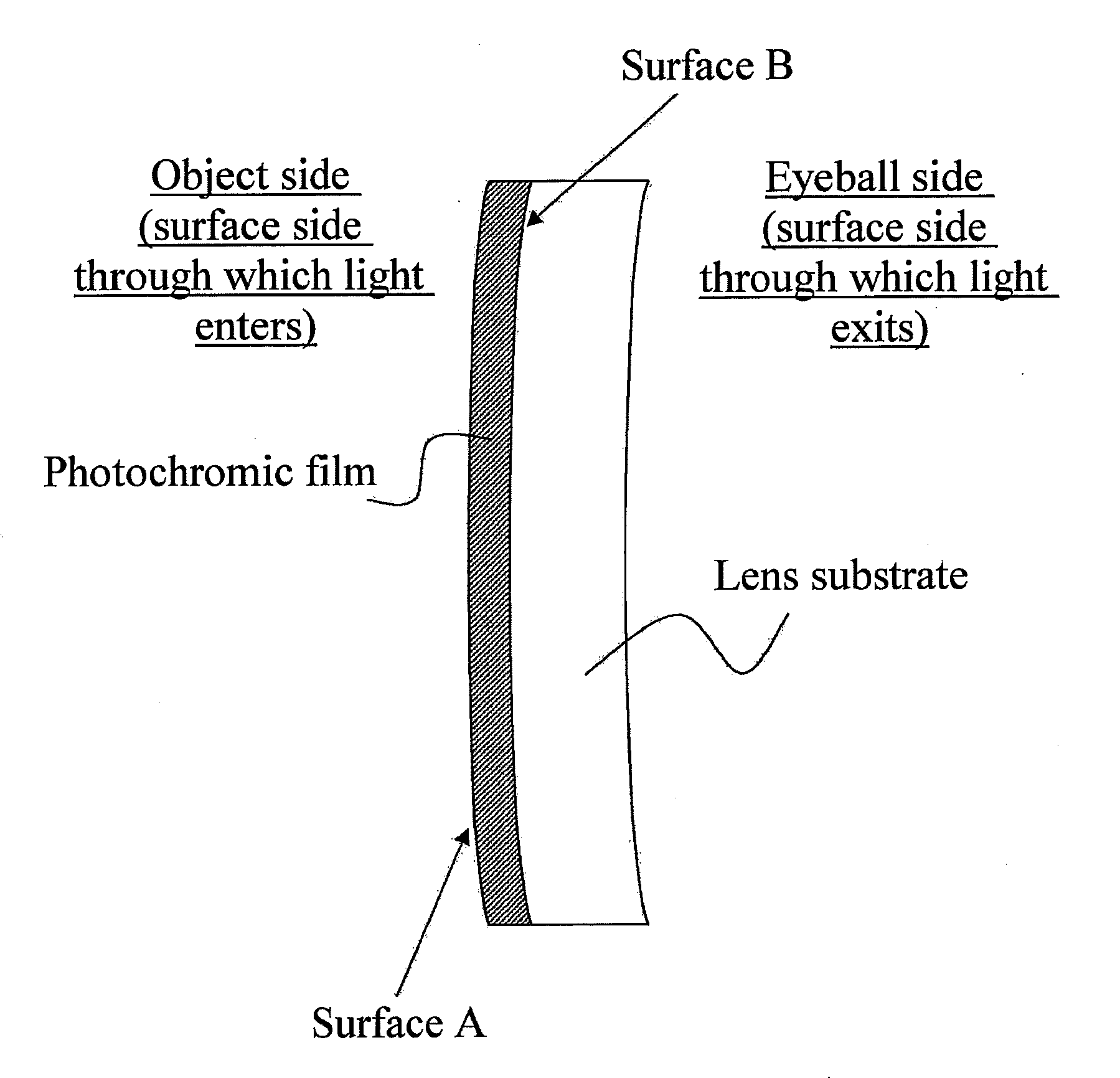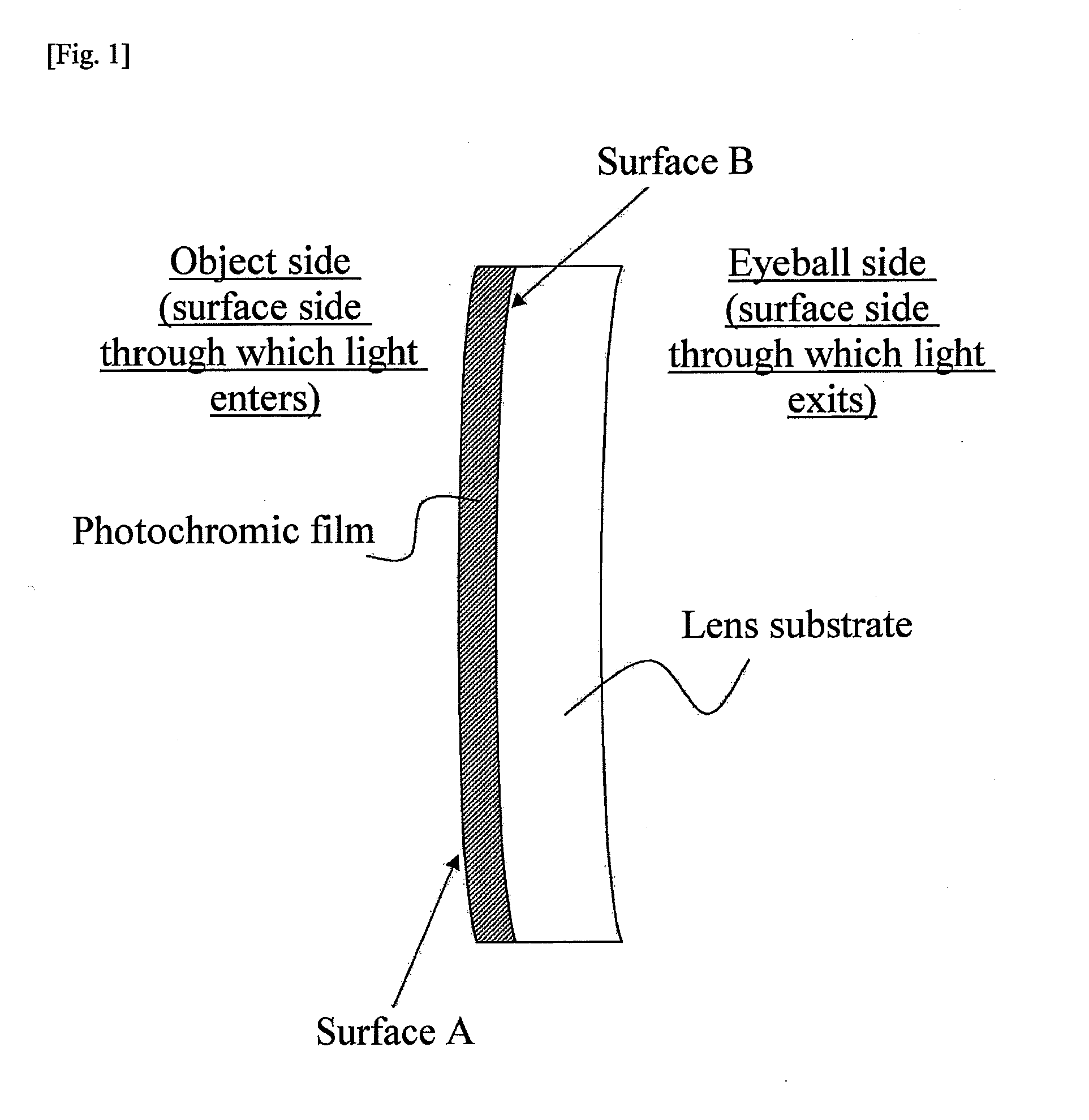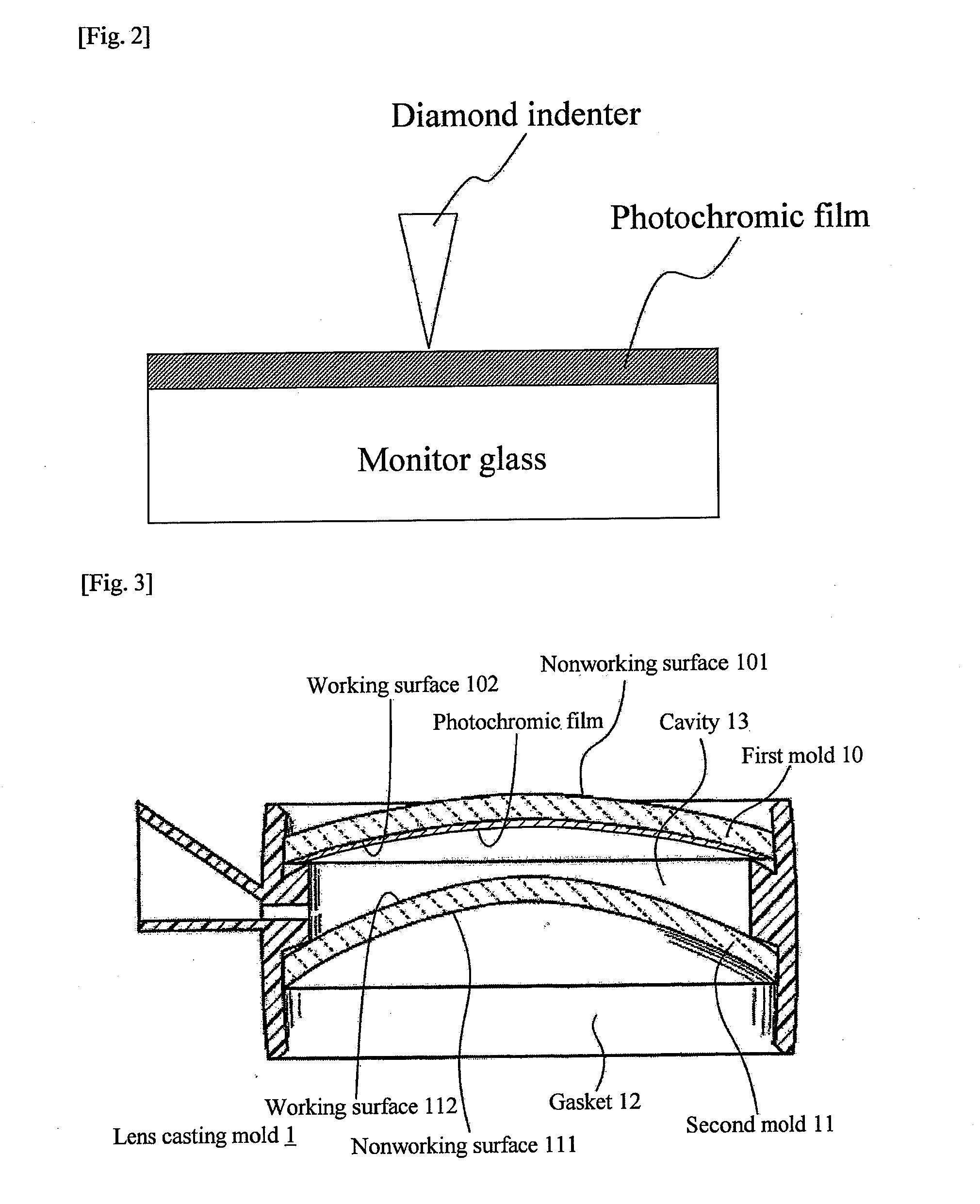Photochromic film, photochromic lens comprising the same, and method of manufacturing photochromic lens
a technology which is applied in the field of photochromic film and photochromic lens comprising the same, and the method of manufacturing photochromic lens, can solve the problems of reduced optical characteristics, reduced light responsiveness of conventional photochromic film to light, and formation of striae in the lens, etc., and achieve excellent light responsiveness and excellent optical characteristics.
- Summary
- Abstract
- Description
- Claims
- Application Information
AI Technical Summary
Benefits of technology
Problems solved by technology
Method used
Image
Examples
example 1
1. Preparation of Photochromic Liquid
[0219]In a plastic container, to 100 weight parts of radical polymerizable monomer comprised of 20 weight parts of trimethylolpropane trimethacrylate, 35 weight parts of BPE oligomer (2,2-bis(4-methacryloyloxypolyethoxyphenyl)propane), 10 weight parts of EB6A (polyester oligomer hexaacrylate), 10 weight parts of polyethylene glycol diacrylate having an average molecular weight of 532, and 10 weight parts of glycidyl methacrylate were added 3 weight parts of photochromic dye in the form of the chromene 1 denoted below, 5 weight parts of a hindered amine compound (oxidation inhibitor) in the form of LS765 (bis(1,2,2,6,6-pentamethyl-4-piperidyl)sebacate and methyl(1,2,2,6,6-pentamethyl-4-piperidyl)sebacate), 0.4 weight part of a UV polymerization initiator in the form of CGI-184 (1-hydroxycyclohexyl phenyl ketone), and 0.1 weight part of CGI403 (bis(2,6-dimethoxybenzoyl-2,4,4-trimethylpentylphosphineoxide). The liquid was degassed for 2 minutes in a...
example 2
Formation of a Photochromic Film 60 Micrometers in Thickness
[0223]The spin coating method of 2.(1) in Example 1 was conducted at the spin number of 300 spins for the period of 10 seconds. The remaining processing was identical to that in Example 1. This yielded a photochromic film 60 micrometers in thickness.
example 3
UV Irradiation Through Both Surfaces of the Mold
[0224]UV radiation was irradiated through both the concave and convex surfaces of the molds using a UV lamp made by Toshiba Lighting & Technology Corporation in a nitrogen atmosphere in 2.(2) in Example 1, and the photochromic liquid was cured. The UV irradiation was conducted for 165 seconds through the concave side and for 90 seconds through the convex side at an irradiation distance of 330 mm. The remaining processing was conducted by the same method as in Example 1, yielding a photochromic film 30 micrometers in thickness.
PUM
| Property | Measurement | Unit |
|---|---|---|
| Nanoscale particle size | aaaaa | aaaaa |
| Nanoscale particle size | aaaaa | aaaaa |
| Nanoscale particle size | aaaaa | aaaaa |
Abstract
Description
Claims
Application Information
 Login to View More
Login to View More - R&D
- Intellectual Property
- Life Sciences
- Materials
- Tech Scout
- Unparalleled Data Quality
- Higher Quality Content
- 60% Fewer Hallucinations
Browse by: Latest US Patents, China's latest patents, Technical Efficacy Thesaurus, Application Domain, Technology Topic, Popular Technical Reports.
© 2025 PatSnap. All rights reserved.Legal|Privacy policy|Modern Slavery Act Transparency Statement|Sitemap|About US| Contact US: help@patsnap.com



